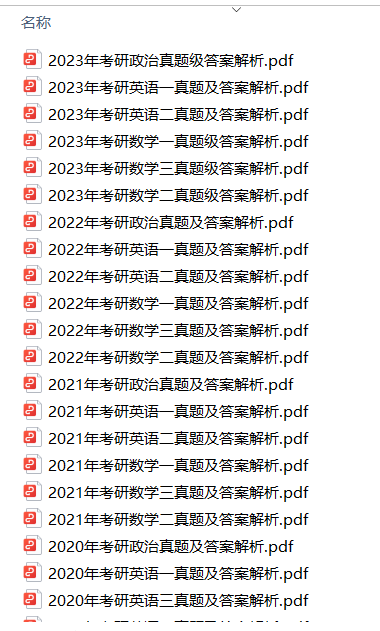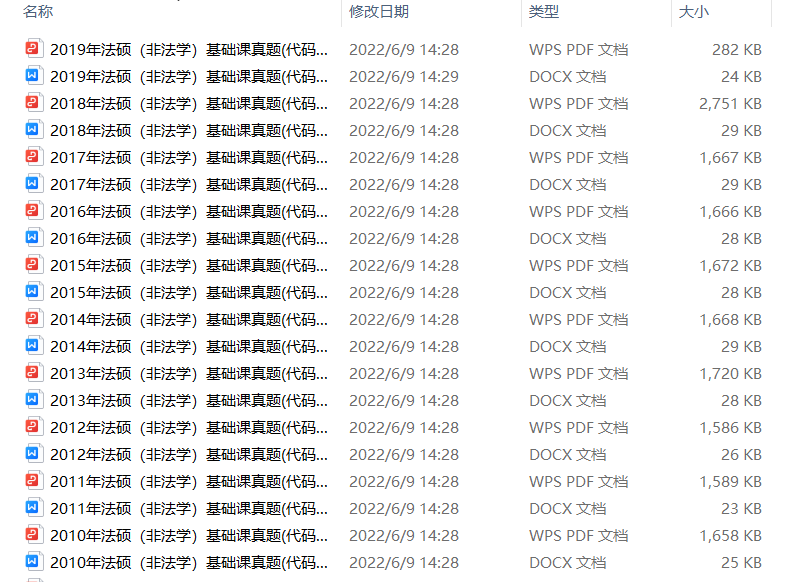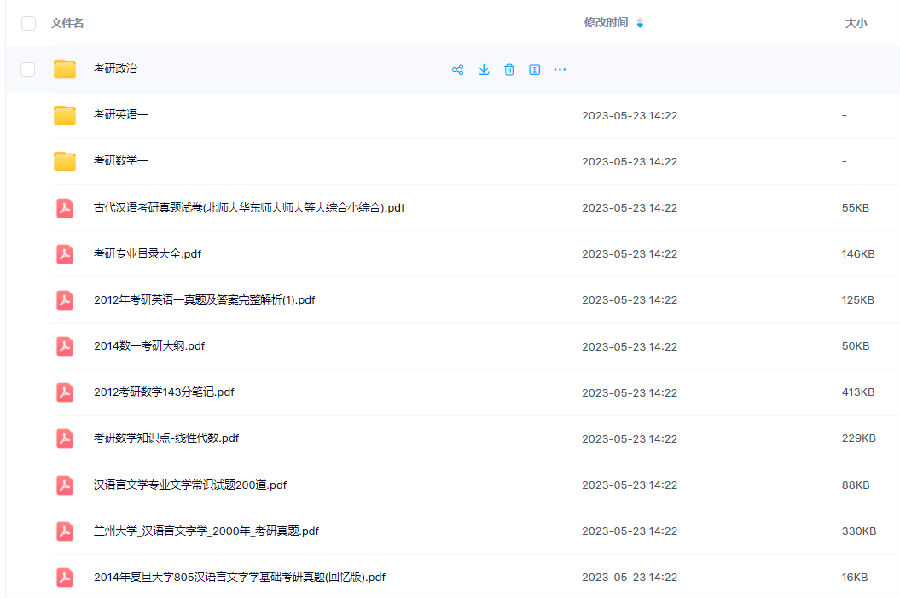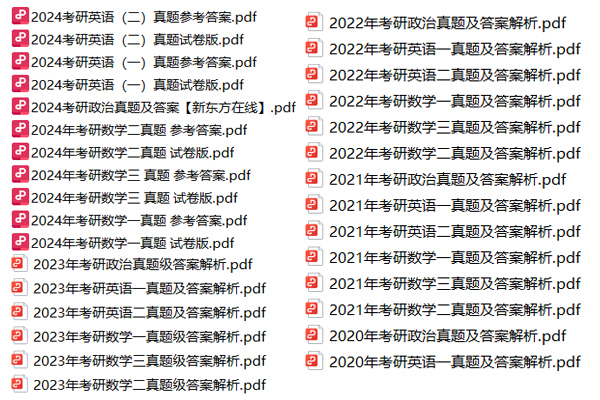特惠-26考研冲刺
特惠-27考研课
双证-在职硕士
免联考-同等学力
26考研-肖八笔记
26考研-时政刷题
26考研-作文押题
26考研-全套真题
26考研-提前估分
保研-路线图
27考研-智能择校
27考研-英语测评
27考研-新大纲对比
热门-计算机择校

扫码加入训练营
牢记核心词
学习得礼盒
考研中一般在复试期间大家会联系硕士研究生导师,因为提前联系运气好的话,导师看到你的简历后可能对你非常感兴趣,在不违背原则的前提下没准会对你的复试指点一二。那在和导师邮件沟通的过程中如果你对导师的学术著作颇有研究或者在考研前就已经瞄准某位导师,那就很有必要对于硕士研究生导师的信息提前熟悉了解,方便以后的沟通。下面新东方在线考研频道为大家分享:“ 中国人民大学信息学院硕士研究生导师信息:余艳 ”文章。
余艳
余艳,中国人民大学信息学院副教授,硕士生导师。2009-2011年在香港城市大学从事研究员工作。她的研究以“新兴技术驱动下的知识管理与创新”为核心,研究领域涉及企业知识管理、开放式创新、战略性组织学习、社会媒体影响力等多个方面。她已经在信息系统领域国际一流学术期刊和会议发表学术论文30余篇,包括Journal of Business Research, Decision Support Systems, International Journal of Information Management, Behavior & Information Technology, Computers & Education, Journal of Knowledge Management等国际期刊,和ICIS, ECIS, AOM, HICSS, PACIS, AMCIS等信息系统领域顶级国际会议,并曾获得国际信息系统大会ICIS2010最佳论文提名奖。她目前主持国家自然科学基金项目1项,北京市自然科学基金项目1项,并参与国家自然科学基金重点项目1项目以及香港研究资助局多个项目。
电子邮箱:yanyu@ruc.edu.cn
更多教育经历
2009年毕业于香港城市大学并获管理信息系统学博士学位
之前就读于北京大学并取得管理学硕士学位、信息管理/经济学双学士学位
工作经历
2017-至今,中国人民大学,副教授;
2012-2017年,中国人民大学,讲师;
2009-2011年,香港城市大学,研究员;
2005年,香港城市大学,研究助理。
研究方向
数字创新
知识管理
智慧医养
讲授课程
知识管理与创新、管理研究方法(硕士生课程)
业务流程管理、IT项目管理(本科生课程)
科研项目
”互联网思维下小微企业创新生态治理机制研究“,北京市社会科学基金项目,2017-2019年,项目主持人。
”互联网+时代的组织变革与创新管理:领导力、知识和大数据驱动多视角分析“,中国人民大学跨学科案例项目,2016-2017年,项目主持人。
“面向科技型中小企业的数字化服务创新生态系统价值共创机制研究\",国家自然科学基金面上项目,2016-2019年,项目主持人。
“科技信息服务创新:语义社会网络构建与专家推荐系统研究”,北京市自然科学基金项目,2014-2016年,项目主持人。
“面向企业2.0的研发团队知识共享与创新多层次模型研究”,国家自然科学基金青年项目,2013-2015年, 项目主持人。
“面向企业团队的隐性知识分析方法研究与应用评价”,中国人民大学校内基金项目,2012-2014年,项目主持人。
“在线个性定制系统的设计特性对消费者定制行为的影响研究”, 国家自然科学基金重点项目,2014-2018年,主要参与人。
“战略领导力、组织学习对高科技企业双元能力建设的影响研究”, 国家自然科学基金面上项目,2014-2017年,合作人与主要参与人。
Enhancing Hong Kong SMEs’ Competitiveness via Open Information Services, 2009-2012年,香港大学研究资助项目,主要参与人。
Exploration, Instantiation and Evaluation of Social Networking for Learning Support,2008-2009年,香港大学研究资助项目,主要参与人。
科研成果
国际期刊论文:
[1] Yu, Y., Li, M., Li, X. Zhao, J. (2018) “Effects of Entrepreneurship and IT Fashion on SMEs’ Transformation toward Cloud Service through Mediation of Trust, ” Information & Management, 55(2), pp.245-257.
[2] Dong, X.Y., Yu, Y.*, Zhang, N. (2016) “Evolution and Coevolution: Dynamic Knowledge Capability Building for Catching-up in Emerging Economies,” Management and Organization Review, (12:4), pp.717-745.
[3] Yan, M.L., Yu, Y.*, Dong, X.Y. (2016) “Contributive Roles of Multilevel Organizational Learning for the Evolution of Organizational Ambidexterity,” IT & People, (29:3), pp. 647-667.
[4] Hao, J.X., Yu, Y.*, Law, R., and Fong, D.K.C. (2015) “A genetic algorithm-based learning approach to understand customer satisfaction with OTA websites,” Tourism Management (48): pp. 231-241.
[5] Li, M., Zhao, D., and Yu, Y. (2015) “TOE drivers for cloud transformation: direct or trust-mediated?,” Asia Pacific Journal of Logistic and Marketing, (27:2): pp.226-248.
[6] Zhou, J.J., Zuo, M.Y., Yu, Y., and Cai, W. (2014) “How Fundamental and Supplemental Interactions Affect Users’ Knowledge Sharing in Virtual Communities? A Social Cognitive Perspective,” Internet Research(24:5), pp.566-586.
[7] Yu, Y., Dong, X.Y., Shen, K.N., Khalifa, M. and Hao, J.X. (2013) “Strategies, Technologies and Organizational Learning for Developing Organizational Innovativeness in an Emerging Economy,” Journal of Business Research (66:12), pp. 2507-2514.
[8] Yu, Y., Hao, J.X., Dong, X.Y. and Khalifa, M. (2013) “A Multilevel Model for Effects of Social Capital and Knowledge Sharing in Knowledge-Intensive Work Teams,” International Journal of Information Management (33:5), pp. 780-790.
[9] Tian S.W., Yu, A.Y., Vogel, D. and Kwok, C.W.R. (2011) “The Impact of Online Social Networking on Learning: A Social Integration Perspective,” International Journal of Networking and Virtual Organisation (8:3/4), pp.264-280.
[10] Yu, A.Y., Tian, S.W., Vogel, D. and Kwok, C.W.R. (2010) “Can Learning be Virtually Boosted? An Investigation of Online Social Networking Impacts,” Computers & Education (55:4), pp.1494-1503.
[11] Shen, K.N., Yu A.Y. and Khalifa, M. (2010) “Knowledge Contribution in Virtual Communities: Accounting for Multiple Dimensions of Social Presence through Social Identity,” Behaviour & Information Technology (29:4), pp. 337-348.
[12] Hao, J.X., Kwok, C.W.R., Lau, Y.K.R. and Yu A.Y. (2010) “Predicting Problem-solving Performance with Concept Maps: An Information-theoretic Approach,” Decision Support Systems (48:4), pp. 613-621.
[13] Khalifa, M., Yu, A.Y. and Shen, K.N. (2008) “Knowledge Management Systems Success: A Contingency Perspective,” Journal of Knowledge Management, (12:1), pp.119-132.
国际会议论文:
[1] Yu, Y., Li, M., Hao, J.X., Li, X., Zhao, J. (2017) “Mediating Role of Trust Belief in SMEs’ Strategic Choice of Cloud Service,” Proceedings of the 23rd Americas Conference on Information Systems (AMCIS), Boston.
[2] Yu, Y., Hao, J.X., Zuo, M.Y., Shan, S.Q., Westland, C. (2016) “Co-Diffusion of Mobile Operator’s OTT and SMS Messaging Services in Emerging Economies,” Proceedings of the 37th International Conference on Information Systems (ICIS), Dublin, Ireland.
[3] Yu, Y., Wang, C.Q., Luo, K.Y., Liu, B. (2016) “Mixing Consumers’ Rationality and Sociality: Effects of Product Quantity and Popularity Information on Online Shopping,” Proceedings of the 20th Pacific-Asia Conference on Information Systems (PACIS), Taiwan.
[4] Sun, R.L., Hao, J.X., Fong, D., Law, R., Yu Y. (2016) “Exploring the expenditure-based profile of Macao visitors: A cluster analysis,” Proceedings of the 20th Pacific-Asia Conference on Information Systems (PACIS), Taiwan.
[5] Hao, J.X., Yu, Yan*. (2016) \"Understanding Attitude Towards Concept Map Usage: An Exploratory Study in China,” in “Innovating with Concept Mapping”, Springer International Publishing Switzerland. Conference: 7th International Conference on Concept Mapping (CMC), Tallinn, Estonia, September 05-09, 2016 (CPCI/EI)
[6] Yu, Yan., Jia, S.L., Hao, J. (2016), Modelling semantic social network for researcher recommendation: A conceptual graph perspective, The 13th International Conference on Industrial Management, Hiroshima, September 21-23, 2016. (CPCI/ISTP)
[7] Wu, H.L., Hao, J., Yu, Yan*. (2016), Discovering the innovation landscape of knowledge management research in tourism industry, The 13th International Conference on Industrial Management, Hiroshima, September 21-23, 2016. (CPCI/ISTP)
[8] Zhang, Q., Wang, Q., Hao, J., Yu, Yan*. (2016), Mapping smart tourism research in China, A semantic and social network analysis using CiteSpace, The 13th International Conference on Service Systems and Service Management, Kunming, June 24-26, 2016. (CPCI/EI)
[9] Gao, S.S., Wang, L.D., Ma, X.J., Yu, Yan*. (2016), Spammer detection based on comprehensive features in Sina microblog, The 13th International Conference on Service Systems and Service Management, Kunming, June 24-26, 2016. (CPCI/EI)
[10] Yu, Y., Hao, J.X., Dong, X.Y. (2015) “Social Identification Mediated Interdependence Designs for Team Knowledge Sharing,” Proceedings of the 19th Pacific-Asia Conference on Information Systems (PACIS), Singapore. Paper 153.
[11] Hao, J.X., Tang, R., Yu, Y.*, Li, N. and Law, R. (2015) “Visual Appeal of Hotel Websites: An Exploratory Eye Tracking Study on Chinese Generation Y,” ENTER 2015, Switzerland.
[12] Yan, M.L., Yu, Y., Dong, X.Y. (2014) “Organizational Ambidexterity Building via Strategic Learning and Business Learning,” Proceedings of the 47th Hawaii International Conference on System Sciences (HICSS), Hawaii, USA. pp. 3584-3593.
[13] Yan, M.L., Yu, Y., Dong, X.Y. (2013) “Organizational Ambidexterity Building via IT-enabled Strategic Learning and Business Learning: An Evolutionary Journey of Huawei,” Proceedings of the 34th International Conference on Information Systems (ICIS), Milan, Italy. vol.3, pp.2856-2874.
[14] Hao, H.X., Yu, Y., Kwok, R.C.W. (2013) “The Learning Impacts of A Concept Map Based Classroom Response System,” Proceedings of the 17th Pacific-Asia Conference on Information Systems (PACIS), Jeju, Korea.
[15] Li, M., Yu, Y., Li, X. and Zhao, J.L. (2012) “Drivers for Strategic Choice of Cloud Computing as Online Service in SMEs,” Proceedings of the 33rd International Conference on Information Systems (ICIS), Orlando, USA. vol.4, pp.3529-3539.
[16] Yu, Y., Dong, X.Y. and Zuo, M.Y. (2012) “Constitutive Roles of External and Internal Information Systems for Effective Interorganizational Knowledge Transfer: A Dyadic Approach,” Proceedings of the 16th Pacific-Asia Conference on Information Systems (PACIS), Ho Chi Minh, Vietnam.
[17] Dong, X.Y., Yu, Y., Wang, X. and Zhang, N.N. (2012) “Leveraging e-government for City Transformation: A Case Study of ‘Digital Wuyi’,” Proceedings of the 15th European Conference on Information Systems (ECIS), Barcelona, Spain.
[18] Zhang, N.N, Yu, A.Y. and Dong, X.Y. (2011) “A Coevolutionary Journey of Strategic Knowledge Management Alignment: A Chinese Case,” Proceedings of the 32th International Conference on Information Systems (ICIS), Shanghai, China. pp. 4117-4135.
[19] Hao, J.X. Yu, A.Y. and Dong, X.Y. (2011) “Bridging Role of Absorptive Capacity on Knowledge Management,” Proceedings of the 15th Pacific-Asia Conference on Information Systems (PACIS), Brisbane, Australia.
[20] Yu, A.Y., Hao, J.X., Dong, X.Y. and Khalifa, M. (2010) “Revisiting the Effect of Social Capital on Knowledge Sharing in Work Teams: A Multilevel Perspective,” Proceedings of the 31th International Conference on Information Systems (ICIS), St. Louis, USA. (Best Paper Nominee)
[21] Yu, A.Y., Tian, S.W., Vogel, D. and Kwok, C.W.R. (2010) “Embedded Learning in Online Social Networking,” Proceedings of the 31th International Conference on Information Systems (ICIS), St. Louis, USA.
[22] Yu, A.Y. and Dong, X.Y. (2009) “What Does Interdependence Miss? Knowledge Sharing Through Social Identification Towards Teams,” Annual Meeting of the Academy of Management (AOM), Chicago, USA.
[23] Tian, S.W., Yu, A.Y., Vogel, D. and Kwok, C.W.R. (2009). “Social Networking Impact on Learning,” Proceedings of the 8th Wuhan International Conference on e-business, Wuhan, China.
[24] Yu, A.Y., Dong, X.Y. and Qi, D.J. (2008) “Developing Knowledge Absorptive Capacity of SMEs in China,” Proceedings of the 14th Americas Conference on Information Systems (AMCIS), Toronto, Canada.
[25] Khalifa, M., Yu, A.Y. and Shen, K.N. (2007) “Build up Organizational Innovativeness: An Integrated View,” Proceedings of the 40th Hawaii International Conference on System Sciences (HICSS), Hawaii, USA.
[26] Shen, K.N., Yu, A.Y. and Khalifa, M. (2007) “Knowledge Contribution in Virtual Communities: Accounting for Multiple Dimensions of Social Presence through Social Identity,” Proceedings of the 11th Pacific-Asia Conference on Information Systems (PACIS), New Zealand.
[27] Hao, J.X. and Kwok, C.W.R. and Yu, A.Y. (2007) “Automatic Semantic Causal Map Integration,” Proceedings of the 11th Pacific-Asia Conference on Information Systems (PACIS), New Zealand.
[28] Shen, K.N., Khalifa, M. and Yu, A.Y. (2006) “Supporting Social Interaction in Virtual Communities: Role of Social Presence,” Proceedings of the 12th Americas Conference on Information Systems (AMCIS), Acapulco, Mexico.
中文期刊论文:
[1] 董小英,张娜,余艳.企业管理与知识管理战略动态演化路径案例研究,《信息系统学报》,2012年,第10辑,14-22页。
[2] 董小英,余艳*,张娜.企业竞争战略与知识管理战略动态匹配与共同演化:以李宁公司为例,《管理学报》,2014年4月,第11卷第4期,478-486页。
[3] 董小英,晏梦灵,余艳*.企业创新中探索与利用活动的分离-集成机制——领先企业双元能力构建研究,《中国软科学》,2015年第12期,103-119页。
[4] 晏梦灵,董小英,余艳.多层次组织学习与企业研发双元能力构建——以华为IPD系统实施为例,《研究与发展管理》,2016年8月,第28卷4期,72-86页。
[5] 晏梦灵,余艳,董小英.基于信息系统与组织学习的双元能力构建机制:以华为为例,《信息系统学报》,2016年第1期。
[6] 栾世栋,戴亦舒,余艳,董小英,杨博.数字化时代的区域卫生信息平台顶层设计研究,《管理科学》,2017年1月,第30卷第1期,15-30页。
[7] 董小英,晏梦灵,余艳,胡燕妮.实践智慧助力中关村企业战略转型,《清华管理评论》,2017年1-2期,82-91页。
社会兼职
AIS/AOM成员
荣誉获奖
Beta Gamma Sigma 成员
ICIS2010最佳论文提名
以上就是新东方在线考研频道为大家分享的文章:“中国人民大学信息学院硕士研究生导师信息:余艳 ”。建议大家给导师发邮件题目直接写“姓名 xxx专业硕士自荐信”等,让硕士研究生导师一眼就能知道你的目的。内容主要分成两个部分:第一,要说明自己的情况。第二,要表明对老师研究方向的兴趣。
本文关键字: 硕士研究生导师

 资料下载
资料下载
2014年-2025年考研历年真题汇总
发布时间:2024-04-25扫码添加【考研班主任】
即可领取资料包
考研大纲PDF电子版下载-历年(附解析)
发布时间:2024-04-25扫码添加【考研班主任】
即可领取资料包
2026年考研政数英备考资料zip压缩包
发布时间:2024-04-25扫码添加【考研班主任】
即可领取资料包
考研英语大纲词汇5500打印版(基础必备)
发布时间:2024-04-25扫码添加【考研班主任】
即可领取资料包
新东方在线考试模拟题【12套】
发布时间:2024-04-25扫码添加【考研班主任】
即可领取资料包
2026年考研专业课知识点总结
发布时间:2024-04-25扫码添加【考研班主任】
即可领取资料包
新东方考研资料下载地址
发布时间:2023-05-17新东方在线考研资料合集
下载方式:微信扫码,获取网盘链接

目录:
1.2013-2023年近10年政数英真题及解析PDF版(新东方)
2.2013-2023年专业课考试历年真题及解析PDF版
3.24考研复习备考资料大合集:大纲+备考资料+词汇书+考前押题+自命题
资料介绍:
1.2013-2023年近10年政数英真题及解析PDF版(新东方)
 、
、
2.2013-2023年专业课考试历年真题及解析PDF版


3.24考研复习备考资料大合集

3.24考研复习备考资料:考研大纲

3.24考研复习备考资料:政数英备考资料+自命题真题

------------------
考研备考过程中,尤其是专业课部分,参考往年的考试真题,对于我们的复习有更好的帮助。北京大学考研真题资料都有哪些?小编为大家进行了汇总。
北京大学考研真题资料-公共课

北京大学考研真题资料-专业课


以上就是关于“北京大学考研真题资料下载(历年汇总)”的整理,更多考研资料下载,请关注微信获取下载地址。
2024考研公共课必背知识点汇总
发布时间:2023-01-03扫码添加【考研班主任】
即可领取资料包
2013-2023考研历年真题汇总
发布时间:2023-01-03扫码添加【考研班主任】
即可领取资料包
考研英语大纲词汇(PDF可打印)
发布时间:2023-01-03扫码添加【考研班主任】
即可领取资料包
2024考研专业课知识点总结
发布时间:2023-01-03扫码添加【考研班主任】
即可领取资料包
2023考研政治 内部押题 PDF
发布时间:2022-11-16扫码添加【考研班主任】
即可领取资料包
徐涛:23考研预测六套卷
发布时间:2022-11-16扫码添加【考研班主任】
即可领取资料包
考研政数英冲刺资料最新整理
发布时间:2022-11-16扫码添加【考研班主任】
即可领取资料包
23考研答题卡模板打印版
发布时间:2022-11-16扫码添加【考研班主任】
即可领取资料包
2023考研大纲词汇5500PDF电子版
发布时间:2022-07-28扫码添加【考研班主任】
即可领取资料包
考研历年真题(公共课+专业课)
发布时间:2022-07-28扫码添加【考研班主任】
即可领取资料包
考研英语阅读100篇附解析及答案
发布时间:2022-01-07扫码添加【考研班主任】
即可领取资料包
新东方考研学霸笔记整理(打印版)
发布时间:2022-01-07扫码添加【考研班主任】
即可领取资料包
2001-2021年考研英语真题答案(可打印版)
发布时间:2022-01-07扫码添加【考研班主任】
即可领取资料包
考研英语词汇5500(完整版下载)
发布时间:2022-01-07扫码添加【考研班主任】
即可领取资料包
2022考研政审表模板精选10套
发布时间:2022-01-07扫码添加【考研班主任】
即可领取资料包
历年考研真题及答案 下载
发布时间:2021-12-09扫码添加【考研班主任】
即可领取资料包
考研政审表模板汇总
发布时间:2020-06-17扫码添加【考研班主任】
即可领取资料包
近5年考研英语真题汇总
发布时间:2020-06-17扫码添加【考研班主任】
即可领取资料包
考研英语大纲词汇5500
发布时间:2020-06-17扫码添加【考研班主任】
即可领取资料包
2022考研12大学科专业排名汇总
发布时间:2019-11-21扫码添加【考研班主任】
即可领取资料包
2023考研政治复习备考资料【珍藏版】
发布时间:2019-11-21扫码添加【考研班主任】
即可领取资料包
考研英语万能模板+必备词汇+范文
发布时间:2019-11-21扫码添加【考研班主任】
即可领取资料包
考研数学一、二、三历年真题整理
发布时间:2019-11-21扫码添加【考研班主任】
即可领取资料包

添加班主任领资料
添加考研班主任
免费领取考研历年真题等复习干货资料

 推荐阅读
推荐阅读
在读研期间,所有与你读研相关的事情,可能都需要经过你的导师同意,所以说,选择导师真的很重要,也希望大家能够认真对待这件事,怎样
来源 : 网络 2022-09-22 07:50:00 关键字 : 硕士研究生导师
在读研期间,所有与你读研相关的事情,可能都需要经过你的导师同意,所以说,选择导师真的很重要,也希望大家能够认真对待这件事,怎样
来源 : 网络 2022-09-22 07:50:00 关键字 : 硕士研究生导师
在读研期间,所有与你读研相关的事情,可能都需要经过你的导师同意,所以说,选择导师真的很重要,也希望大家能够认真对待这件事,怎样
来源 : 网络 2022-09-22 07:50:00 关键字 : 硕士研究生导师
在读研期间,所有与你读研相关的事情,可能都需要经过你的导师同意,所以说,选择导师真的很重要,也希望大家能够认真对待这件事,怎样
来源 : 网络 2022-09-23 07:50:00 关键字 : 硕士研究生导师
在读研期间,所有与你读研相关的事情,可能都需要经过你的导师同意,所以说,选择导师真的很重要,也希望大家能够认真对待这件事,怎样
来源 : 网络 2022-09-23 07:50:00 关键字 : 硕士研究生导师

 资料下载
资料下载
扫码添加【考研班主任】
即可领取资料包
扫码添加【考研班主任】
即可领取资料包
扫码添加【考研班主任】
即可领取资料包
扫码添加【考研班主任】
即可领取资料包
扫码添加【考研班主任】
即可领取资料包
扫码添加【考研班主任】
即可领取资料包
新东方在线考研资料合集
下载方式:微信扫码,获取网盘链接

目录:
1.2013-2023年近10年政数英真题及解析PDF版(新东方)
2.2013-2023年专业课考试历年真题及解析PDF版
3.24考研复习备考资料大合集:大纲+备考资料+词汇书+考前押题+自命题
资料介绍:
1.2013-2023年近10年政数英真题及解析PDF版(新东方)
 、
、
2.2013-2023年专业课考试历年真题及解析PDF版


3.24考研复习备考资料大合集

3.24考研复习备考资料:考研大纲

3.24考研复习备考资料:政数英备考资料+自命题真题

------------------
考研备考过程中,尤其是专业课部分,参考往年的考试真题,对于我们的复习有更好的帮助。北京大学考研真题资料都有哪些?小编为大家进行了汇总。
北京大学考研真题资料-公共课

北京大学考研真题资料-专业课


以上就是关于“北京大学考研真题资料下载(历年汇总)”的整理,更多考研资料下载,请关注微信获取下载地址。
扫码添加【考研班主任】
即可领取资料包
扫码添加【考研班主任】
即可领取资料包
扫码添加【考研班主任】
即可领取资料包
扫码添加【考研班主任】
即可领取资料包
扫码添加【考研班主任】
即可领取资料包
扫码添加【考研班主任】
即可领取资料包
扫码添加【考研班主任】
即可领取资料包
扫码添加【考研班主任】
即可领取资料包
扫码添加【考研班主任】
即可领取资料包
扫码添加【考研班主任】
即可领取资料包
扫码添加【考研班主任】
即可领取资料包
扫码添加【考研班主任】
即可领取资料包
扫码添加【考研班主任】
即可领取资料包
扫码添加【考研班主任】
即可领取资料包
扫码添加【考研班主任】
即可领取资料包
扫码添加【考研班主任】
即可领取资料包
扫码添加【考研班主任】
即可领取资料包
扫码添加【考研班主任】
即可领取资料包
扫码添加【考研班主任】
即可领取资料包
扫码添加【考研班主任】
即可领取资料包
扫码添加【考研班主任】
即可领取资料包
扫码添加【考研班主任】
即可领取资料包
扫码添加【考研班主任】
即可领取资料包

 阅读排行榜
阅读排行榜
 相关内容
相关内容